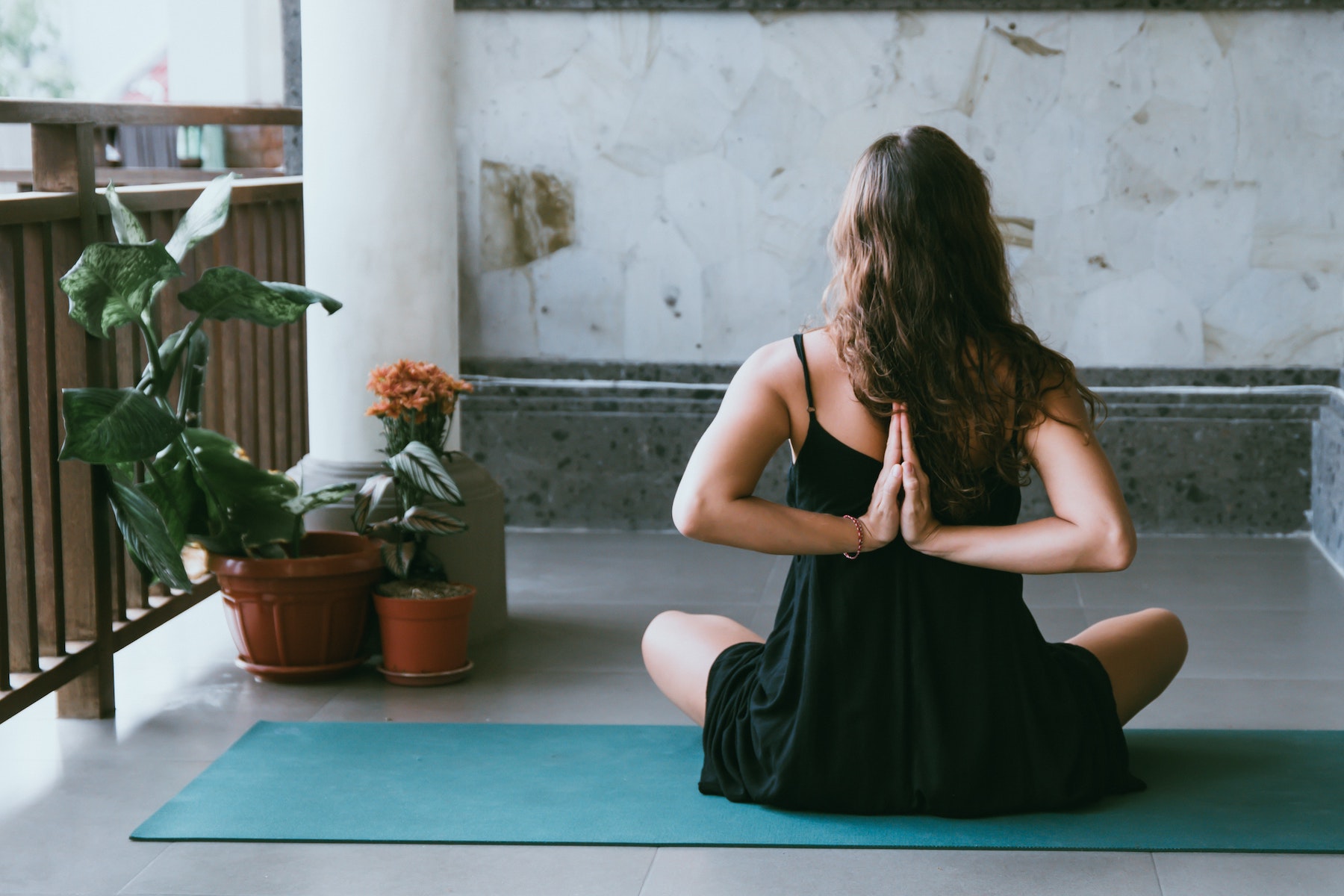Estimated reading time: 13 minutes
Who wouldn’t want to live healthier, happier, stress-free lives? We know there are a thousand fads, gadgets, courses, books, and exercises that will trade their secrets for a fee but when you look at the science, there are at least 22 things we can all do that don’t have to cost a cent and that could yield the benefits we are searching for.
How To Live A Healthy Lifestyle
The holy grail of health is a different quest for each of us. Our bodies, abilities, goals and potential all differ and so each individual’s path to great health will be unique . But there are some things that are beneficial for everyone, and here are our top 22 ways to help you get the most out of your life.
Drink Water
Our bodies need water. They need it for joint, digestive and circulatory health, and for much more besides. Drinking water is good for our mental performance, mood and skin, and also helps us to better control what we eat. If we don’t drink enough we may experience headaches or muscle cramps, and symptoms inevitably worsen as dehydration advances. The recommended amount to drink per day varies depending on who you ask but somewhere in the region of 2-3 liters is sufficient. And if we choose water over sodas then we’ll be hydrating, whilst removing some of the sugar from our diets, and that is a great swap to make.

Sleep Properly
Insufficient sleep has been linked to some serious conditions including diabetes, cardiovascular disease, and a weakened immune system, and so getting enough good-quality sleep is not a luxury, it’s a necessity. For so many of us good sleep remains elusive but there are things we can do to help us get our eight hours a night. Regular exercise can really help, as can meditation and other stress-relieving activities like yoga or mindfulness. A warm bath, a hot cup of chamomile tea, or some lavender oil on the pillow can help calm us and help us drift off. Eating earlier in the evening, and avoiding caffeine through the afternoon could be a game-changer. And setting a time in the evening where all screens go off, and you start your bedtime wind-down routine can also help.

Do Exercises
Exercise is good for us in multiple ways. It strengthens our hearts, improves our circulation and feeds our muscles with oxygen. It can help reduce our risk of heart disease, type 2 diabetes, stroke, and some cancers. It’s also medically proven that people who do regular exercise have up to an 83 percent lower risk of osteoarthritis, a 68 percent reduced risk of hip fracture, and a 30 percent lower risk of early death. People who exercise also get to experience that magical serotonin and endorphin release which makes them FEEL SO GOOD and have a 30 percent reduced risk of depression. What are you waiting for? Get that Lycra on!

Make Some Food Swaps
It’s hard to make sweeping changes to our diet, even when we know deep down we should. But that doesn’t mean we should do nothing! We can make simple food swaps that create only minor ripples in our day-to-day world but can make a whole tidal wave of difference to our health. Switch out beef for beans in your favorite recipes, for example, or white rice for brown rice, and sodas for sparkling water and fresh lemon.
Go Vegan
There’s vegan and then there’s vegan. It’s possible to be vegan while living solely on high-fat, high-sugar convenience foods but that is not what we’re talking about. No, we’re talking about a plant-based diet where whole foods, legumes, fruits and vegetables take center stage. Vegans who eat a balanced whole food diet get all the nutrients they need while reducing the risk of many diseases including cardiovascular diseases, type 2 diabetes, and some cancers. Eating plant-based can even halt and reverse some chronic illnesses, and may help you live longer too. If this is something you’d like to try, register to receive our free resources, and try vegan for 31 days.
Avoid Negative People
You may have someone in mind right now! Yes, those people that leave you stressed, upset or angry and who may have no idea that this is the effect they have on you. If you can have a conversation with them about how they make you feel that could help, but there are cases where it may just be better to put some distance between you. It’s harder if they are family members or part of a social circle but there is no law that says you have to spend time with people just because you’re related. Limiting your contact with them or gently phasing them out of your life altogether can be very liberating, and can vastly improve your mental health.
Be More Positive
It’s funny how we know we have to exercise to get physically fitter but we somehow think mental fitness will just happen for us. Not so, says the World’s Happiest Man, Mattieu Ricard, a Tibetan monk whose brain scans show he experiences a huge level of positive emotions in an area of the brain associated with happiness. If anyone knows about being positive, it’s Ricard, so what does he suggest we do? Among his tips is that we train our brains by setting aside 15 minutes every day to think positive thoughts. This could be during our walk to work, in the bath, while making dinner or by sitting down to specifically think these thoughts. Focusing on the positivity in our lives helps us hold on to those feelings and, says Ricard, we should start to feel the knock-on benefits within a few weeks.
Eat Peacefully On Your Time
How many times have you eaten while watching television or scrolling through social media feeds and barely registered what you ate? Peaceful eating is about dialing down the noise at mealtimes, so you can concentrate on the food itself. This helps slow down our eating, which aids digestion and helps us stop eating when we are full. It also ramps up the pleasure of it, and pauses the busy-ness of the rest of our lives. It may only be 15 minutes, but mealtimes can be a little oasis of calm and enjoyment in an otherwise frantic day. Take the time to enjoy them and appreciate the food.

Start Cooking
It’s easy to rely on convenience foods and to grab on-the-go snacks to keep us fueled as we blast our way through each day. But if we made a little time to cook a meal, we could reap some pretty great rewards. It allows us to: eat exactly the meal you want with the flavors that you love; cook in batches which will save you time; use real ingredients and seasonal produce to save you money; reduce the unhealthy additions to convenience foods; and spend a little time doing something creative. You don’t have to be Wolfgang Puck to whip up a great meal. Anyone can make a really tasty dish without a heap or kitchen experience. Start with simple recipes that are quick to make, and grow from there.
Quit Smoking
This one is a no-brainer but that doesn’t make it easy to do. The downsides of smoking are well known and living better and longer means reducing the risk of cardiovascular disease and lung cancer associated with tobacco. If you’ve tried to quit once and failed, please try again. There are many resources to help you – from moral support to stop smoking aids – and the sooner you can get away from those toxins, the sooner you can embrace great health.
Create A Brush And Floss Routine
No, not a haircare / 2018 dance craze combo, we’re talking dental care. Obviously, keeping your teeth clean and strong has great importance for our own comfort and wellbeing, as well as our self-esteem. But, bizarrely, regular tooth brushing is linked to a lower rate of heart disease. According to the European Society of Cardiology: “Research suggests that poor oral hygiene leads to bacteria in the blood, causing inflammation in the body. Inflammation increases the risks of atrial fibrillation (irregular heartbeat) and heart failure (the heart’s ability to pump blood or relax and fill with blood is impaired).” The advice is to brush our teeth for at least two minutes twice a day.
Share Daily Meals With Who You Love
Loneliness and a feeling of disconnect can affect anyone, even those who share a home with other people. Those who live with a partner, a friend, or family can get great benefits from slowing down and talking over a meal. We can chat about the trivialities of life, share our stories, and listen to another’s point of view, and all this can remind us that we are cared for, and allow us to do the same for others. For those who live alone, a daily meal with a loved one may not be possible but can you arrange regular meals with people you love? An active social life helps us stay happy and more mentally alert and may even help us live longer, too. And the best bit? You are giving these same wonderful benefits to the ones you share your time with.
Smile More And Laugh Out Loud Freely
You may think that you only smile because you’re happy but you can also make yourself happier by smiling. The act of smiling releases feel-good neurotransmitters – dopamine, endorphins and serotonin – which keep us relaxed, lower our heart rate and blood pressure, while also acting as a pain reliever and an antidepressant. So the advice is to fake it until you make it. Smile broadly and the happiness will follow.

The health benefits of laughter have been reported in older people, cancer patients, critical care settings, and even during end-of-life care. And we all know that a good laugh can change how we feel completely, lift our spirits and switch off negative thoughts. Seek out funny people, films, books and social media accounts and let the good times roll.
Improve Your Posture
Good posture helps keep headaches and back pain at bay while relieving tension in our neck and shoulders. It can also reduce wear and tear on our joints. Sitting for long periods is a big problem here, especially if we are draped over a keyboard. Take regular breaks, stand up, walk around, and set an alarm to remind you if you need to. Also, ask yourself: Am I slouching or slumping? Am I tensing in the shoulders or jaw? Yoga and pilates can help us achieve better posture and so can physiotherapy and specific exercises.
Do Some Relaxing Activities, Like Yoga
The alarm goes off, we pull on our clothes, grab a coffee and run out the door. We rush through each day, from the school run to work to our evenings out, via shopping, cooking and household chores, and along the way we solve a thousand problems, make a thousand decisions and answer a thousand questions, all while trying to stay positive and polite. And then we lay down in our beds and wonder why we can’t sleep. Slow down, friends. Find a few minutes in the day to let that heart rate ease, your mind quieten and the stress of the world fall away. Yoga can really help, and there are some amazing online classes that are free to join, so you can take part at home at a convenient time.

Manage Your Stress
Stress is just fine – it helps you survive in dangerous situations – but when you’re stressed out all the time, your body’s life-saving reactions can play havoc with the immune, digestive, cardiovascular, and reproductive systems. We probably all know what stress feels like, and it could be different for each of us, and stress-busting techniques will be similarly diverse. For some, a long hard run at the end of the day helps pound away all that stress; for others, a soak in the bath with a good book will do the trick. But if you’ve been living with stress for some time, you can’t expect to manage it in half an hour. You’ll need to consider building in stress-relieving activities into your daily routine.
Walk More
Walking is great for our bodies, brains and souls. It improves our circulation, helps strengthen our bones, supports our joints, and helps us sleep better. A brisk short walk can raise our heart rates and help keep us heart-healthy, while a long walk in the countryside can do wonders for our state of mind. It can be social, too. Take a friend with you, and you’ll feel multiple benefits.
Turn Off Your Devices
Does your phone flash up your daily screen time? Is it a shock to see it measured in hours when you thought you’d dropped into your social media feeds just for a few minutes? Being constantly connected can impact our mental health and make it much harder to mentally switch off and wind down. It can stop us sleeping and, as we know, that can make us feel bleeuurgh. Try putting your phone in another room when you’re eating and turn it off every evening at least two hours before bedtime. Give yourself a chance to connect face to face with people (if you can) and to allow your brain and nervous system to slow down.
Read More
It doesn’t really matter what you read – from horror to romance to an intricate, twisting-and-turning plot in a psychological thriller – if you read you are strengthening your brain and memory, while reducing stress. And, if you incorporate it into your pre-bedtime routine, it sends a powerful message to your brain and body that it should start winding down. For older people, reading has also been shown to stave off Alzheimer’s. So, get to the library or second-hand book store, or borrow a recommended read from a friend and fall in love with books again.
Take Time For Yourself
All too often the things we want to do for ourselves are at the bottom of a very long list. We say: “I’ll relax right after I’ve painted the living room, scrubbed the kitchen floor, cooked meals for the week, and cleared out the boxes in the garage.” Of course, those few moments we promise ourselves never come. But – and here’s a revolutionary idea – what if we prioritize our own wellbeing, even if that means the car won’t get washed this week? Will the world stop turning? Nope. Will we be more relaxed, less stressed, and happier? Probably.
Go To A Doctor Periodically
If there is something that is worrying you or a health issue that keeps recurring and you can’t seem to get on top of it, please see a doctor. It may be nothing and you can stop stressing about it, or it may be something and you can take action on it. Either way, your health will only improve by seeking advice. In the UK, two thirds of people put off a visit to the doctor because they’re afraid of bad news. In the US, the reasons for not scheduling or for cancelling appointments are diverse, and include cost, time constraints, and access. We understand it’s not easy but if you need help and you can access it, please take it.
Select Goals And Celebrate Your Achievements
There may be no better feeling in this world than setting yourself a goal and then achieving it. Goals give us focus, motivation, and a challenge, and when we stand on the summit, reach the finish line, or hold that certificate in our hands, the feeling of pride and achievement is priceless. Not only does this give our life some purpose but it gives us great stories to tell at parties, too! Best of all, it boosts our esteem and our belief in ourselves, and that does wonders for our mental health.

Conclusion
Living well means different things to each of us, but there are some things that we all want – to be free from pain, to live happily, and to reach our own potential. Incorporate some or all of these hacks into your life and see how things might change for you.
Need inspiration? Take a look at these powerful testimonials by real people who took control of their health and changed their lives. You can too!



